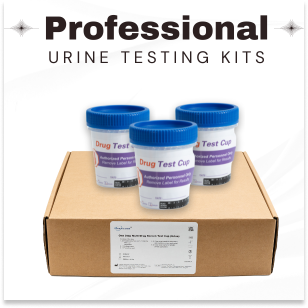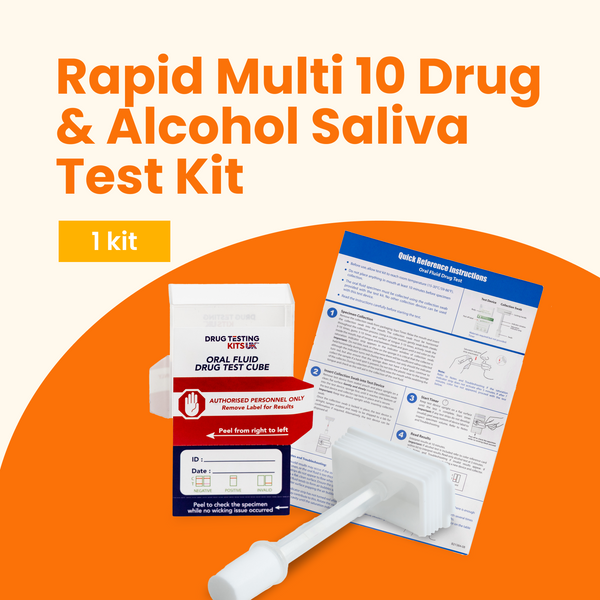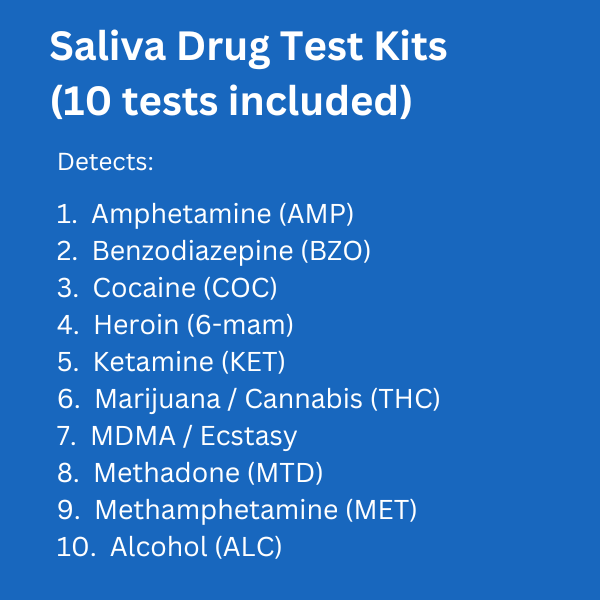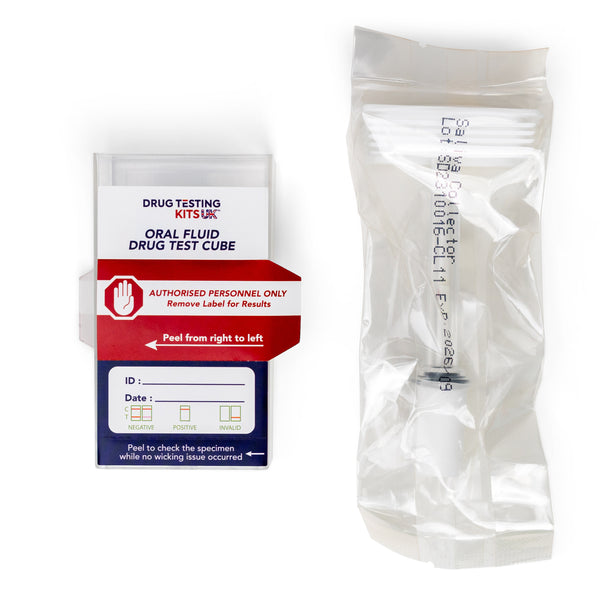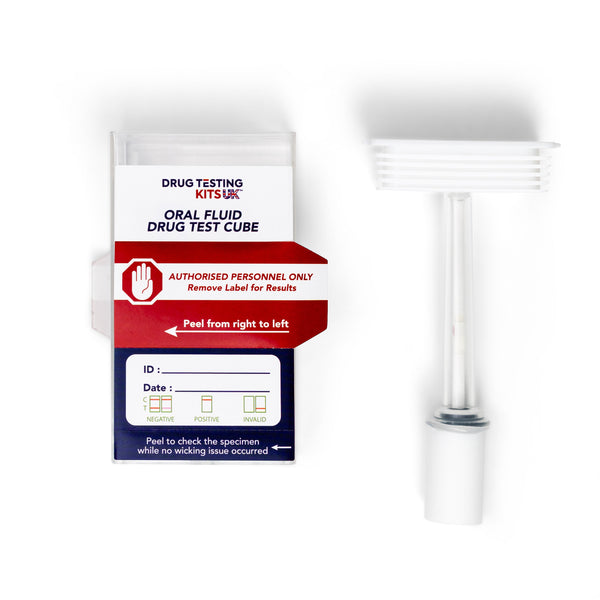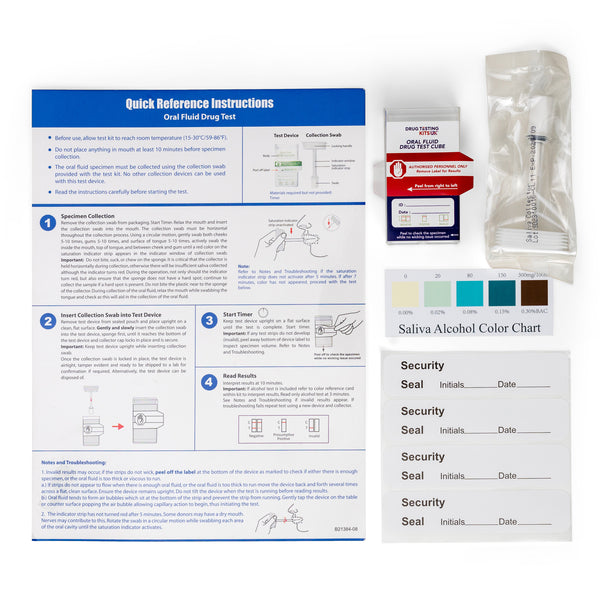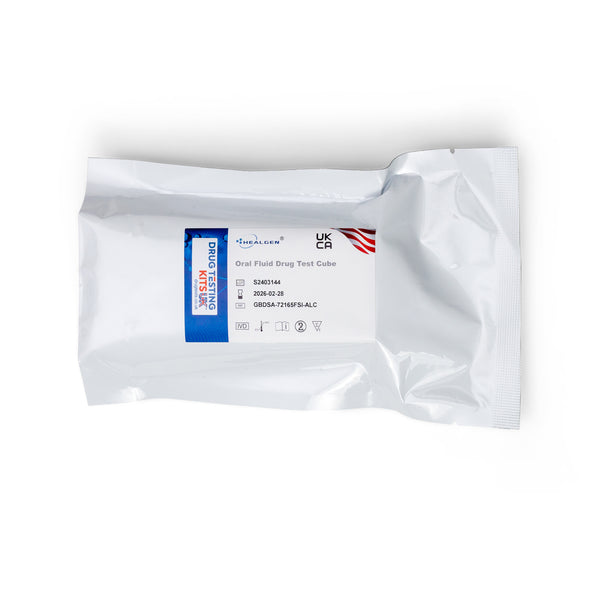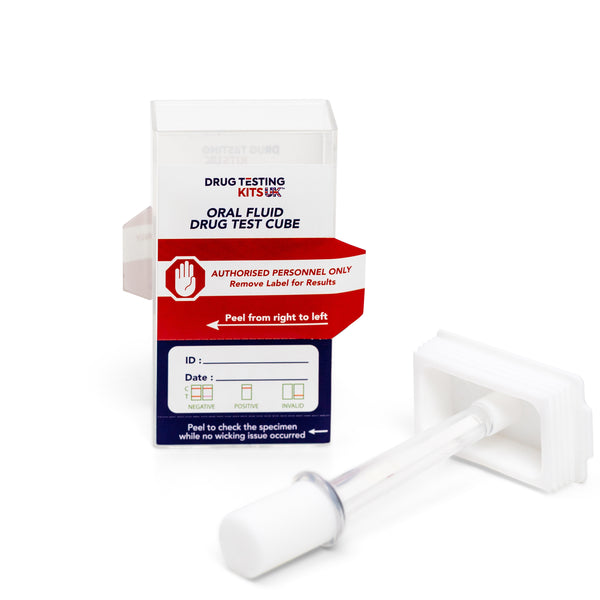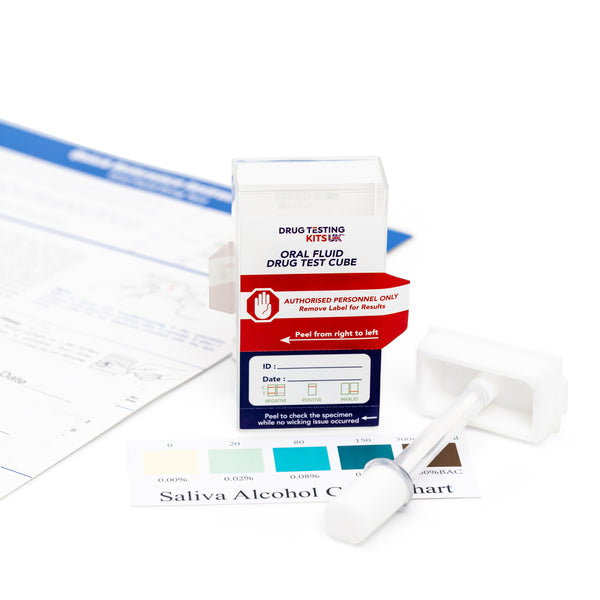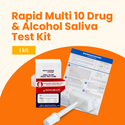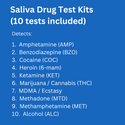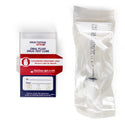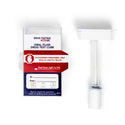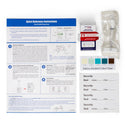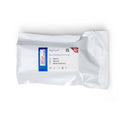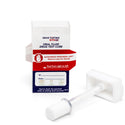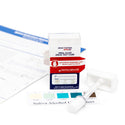For over 8 years, our team has been dedicated to creating a trusted resource for understanding urine drug tests. We draw on credible sources like government agencies and medical institutions to provide clear and reliable information to interpret your test results.
Just took a urine drug test and worried about the results. Relax! This guide will break down those test strip lines, giving you a clear understanding of what they mean.
What do “C” and “T” Mean On a Urine Drug Test?
Here's a closer look at the test strip you just used (refer to the image included). There are two key areas: lines and a strip.

- C (Control Line): The control line always appears, letting you know the test worked properly.
- T (Test Line): The test lines show the presence (or absence) of specific drugs.
How Do You Know If the Urine Drug Test is Positive, Negative, or Invalid?
Now that you understand the lines on the test strip, let's see what they mean!
Negative Result

If two lines appear - the control line (C) and the test line (T) - it means the result is negative This is the good news! It means no traces of the drugs tested for were found in your urine sample above a certain level (cutoff level).
Positive Result

If only one line appears - the control line (C) - and the test line (T) is absent, it indicates a positive result. This means the drug was detected in your urine at a level exceeding the test's cut-off level (Note: Don't worry about specific cut-off levels; they vary by test).
Invalid Test

If neither the control line nor a test line appears, or if multiple test lines show up, the result is invalid. This means the test needs to be repeated.
What Drugs Can a Urine Test Detect?
This table represents common drug categories detected by some urine tests. It's not an exhaustive list, and the specific drugs a test detects will vary depending on the brand and type of test.
| Category | Example Drugs |
|---|---|
| Opioids | Codeine, Morphine, Oxycodone (OxyContin) |
| THC (Marijuana) | Tetrahydrocannabinol, the psychoactive compound in marijuana |
| Cocaine | A stimulant drug |
| Amphetamines | Methamphetamine (Meth), Adderall (prescription stimulant) |
| Phencyclidine (PCP) | A hallucinogenic drug |
| Benzodiazepines | Xanax, Valium (prescription anti-anxiety medications) |
Important Note:
This table represents common drug categories detected by some urine tests. It's not an exhaustive list, and the specific drugs a test detects will vary depending on the brand and type of test. The information booklet or packaging that came with your urine test kit should list the specific drugs the test detects.
Are Urine Drug Tests Accurate?
Urine drug tests are a widely used method for detecting recent drug use. However, it's important to understand their limitations, as outlined by the National Institute on Drug Abuse.
Generally Accurate:
- When performed correctly, urine drug tests can accurately detect the presence of certain drugs within a specific timeframe (detection window).
- This timeframe varies depending on the drug and factors like metabolism and frequency of use.
Factors Affecting Accuracy:
- Cut-off Levels: Tests have a cut-off level, which is the minimum amount of a drug detectable in urine. A result below this level might be considered negative, even if some of the drug is present.
- Metabolism: The body breaks down drugs at different rates. This can affect how long a drug remains detectable in urine.
- User Factors: Factors like hydration levels, recent drug use patterns, and certain medical conditions can influence test results.
- Test Quality: The quality and type of urine drug test can also affect accuracy.
Here's what this means:
- A negative result typically indicates no recent drug use exceeding the cut-off level.
- However, a negative result doesn't necessarily guarantee complete abstinence.
- A positive result requires further investigation, especially for pre-employment or legal situations. Confirmatory tests, like lab-based analysis, are often used for definitive results.
What to do if you have concerns about accuracy:
- Test Instructions: Ensure you followed the test instructions precisely for optimal accuracy.
- Healthcare Professional: If you have concerns about the accuracy of your test result, consult a healthcare professional. They can interpret the results in the context of your individual situation.
How Long Can Drugs Be Detected in Urine?
Urine drug detection times vary depending on factors like the drug itself, your metabolism, and frequency of use. While specific times are difficult to guarantee, the following table provides a general overview of detection windows for common drug classes.
| Drug Class | Approximate Detection Time (Urine) |
|---|---|
| Amphetamines (including Methamphetamine) | 1-4 days |
| Barbiturates (short-acting) | 1-2 days |
| Barbiturates (long-acting) | Up to weeks |
| Benzodiazepines (short-acting) | 2-5 days |
| Benzodiazepines (long-acting) | Up to weeks |
| Cocaine | 1-4 days |
| Fentanyl | Up to 3 days |
| Heroin | 2-3 days |
| Marijuana (THC) | 3-30 days (depending on frequency and amount of use) |
| PCP | 4-10 days |
Source: https://www.ncbi.nlm.nih.gov/books/NBK64092/
Disclaimer: This table is for informational purposes only and should not be interpreted as a guarantee of detection times. Individual factors can significantly influence how long a drug stays detectable in your system.
What Factors Impact How Long a Drug Remains Detectable?

The time a drug stays detectable in urine depends on many factors. Here's a breakdown of the key influences:
- Drug Specifics: Different drugs have inherent differences in how long they linger in the body. For example, THC (marijuana) can be detectable for weeks, while cocaine typically clears out within a few days.
- Individual Metabolism: Your body's metabolic rate plays a significant role. A faster metabolism processes and eliminates drugs quicker, leading to shorter detection windows.
- Frequency and Amount of Use: More frequent and heavier drug use results in higher concentrations in the body, taking longer to eliminate and extending the detection window.
- Hydration Levels: Being well-hydrated can dilute your urine, potentially shortening the detection window (though this is not a recommended practice for manipulating a test).
Test Cut-Off Levels: Urine drug tests have specific cut-off levels, which is the minimum amount of a drug detectable for a positive result. A test might not detect a drug if it falls below this level.
What Should You Do if You Get a False Positive on a Urine Drug Test?
A false positive urine drug test result can be stressful and confusing. Here's what you can do to address it:
- Request a Re-Test: Most testing facilities allow for a re-test, especially if you believe the initial result might be inaccurate. This re-test often uses a more advanced method like gas chromatography-mass spectrometry (GC-MS) for confirmation.
- Explain Medications and Supplements: If you're taking any prescription medications or over-the-counter supplements, inform the testing facility or healthcare professional interpreting the results. Certain medications or supplements can interfere with drug tests and trigger false positives.
- Contact the Medical Review Officer (MRO): Many workplaces or legal proceedings involve a Medical Review Officer (MRO) who reviews positive test results. The MRO can consider your explanation, medical history, and re-test results to determine the validity of the initial positive test.
- Seek Legal Advice (if applicable): If the false positive result has legal implications, such as potential job loss or probation violation, consider consulting an attorney specializing in employment law or relevant legal matters. They can advise you on your rights and potential recourse options.
Important Note:
This information is for general understanding only and shouldn't be interpreted as legal or medical advice. The specific steps you take will depend on the context of your situation. If you have concerns about a false positive drug test result, consult a healthcare professional or legal professional for personalized guidance.



 03333 704 704
03333 704 704

